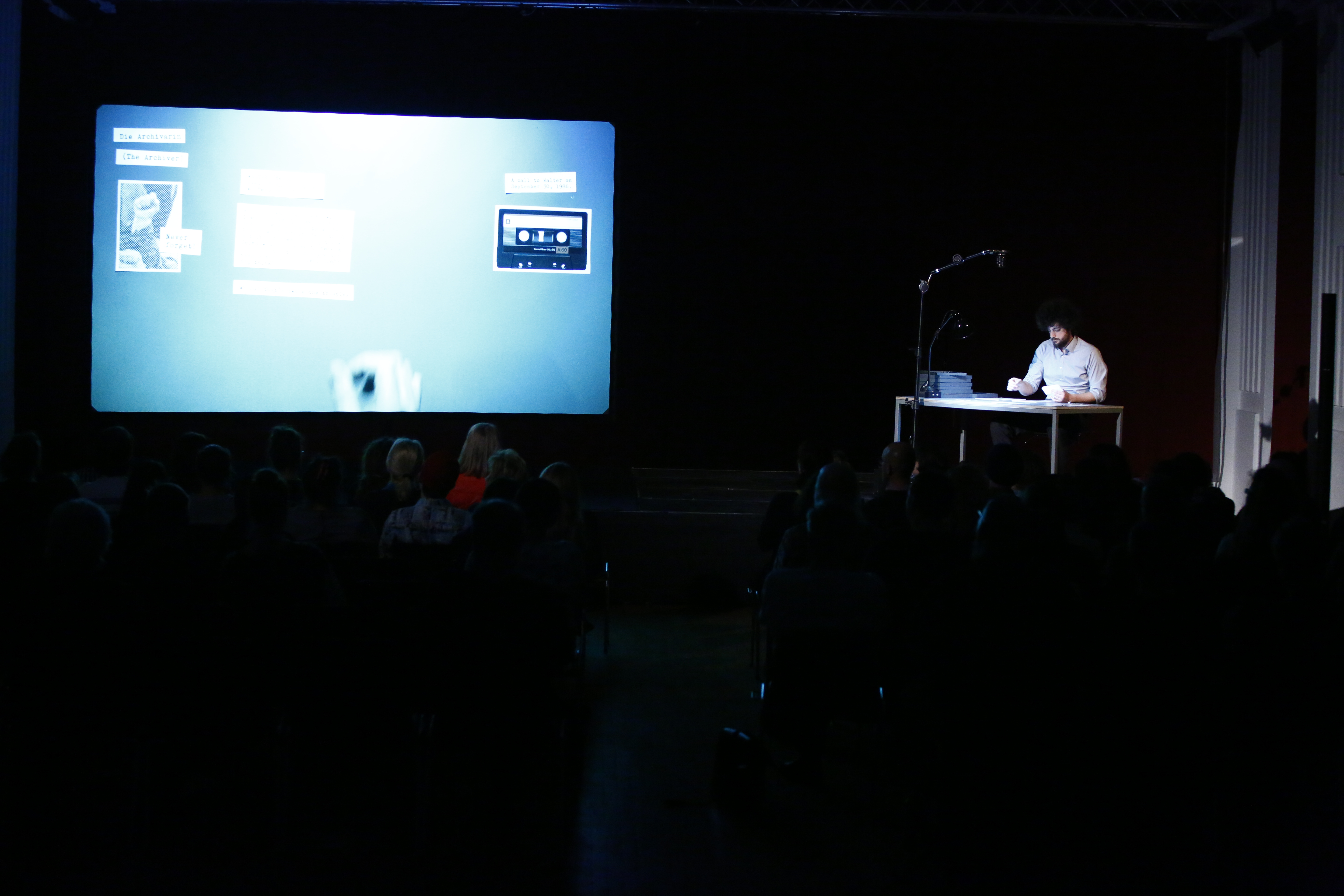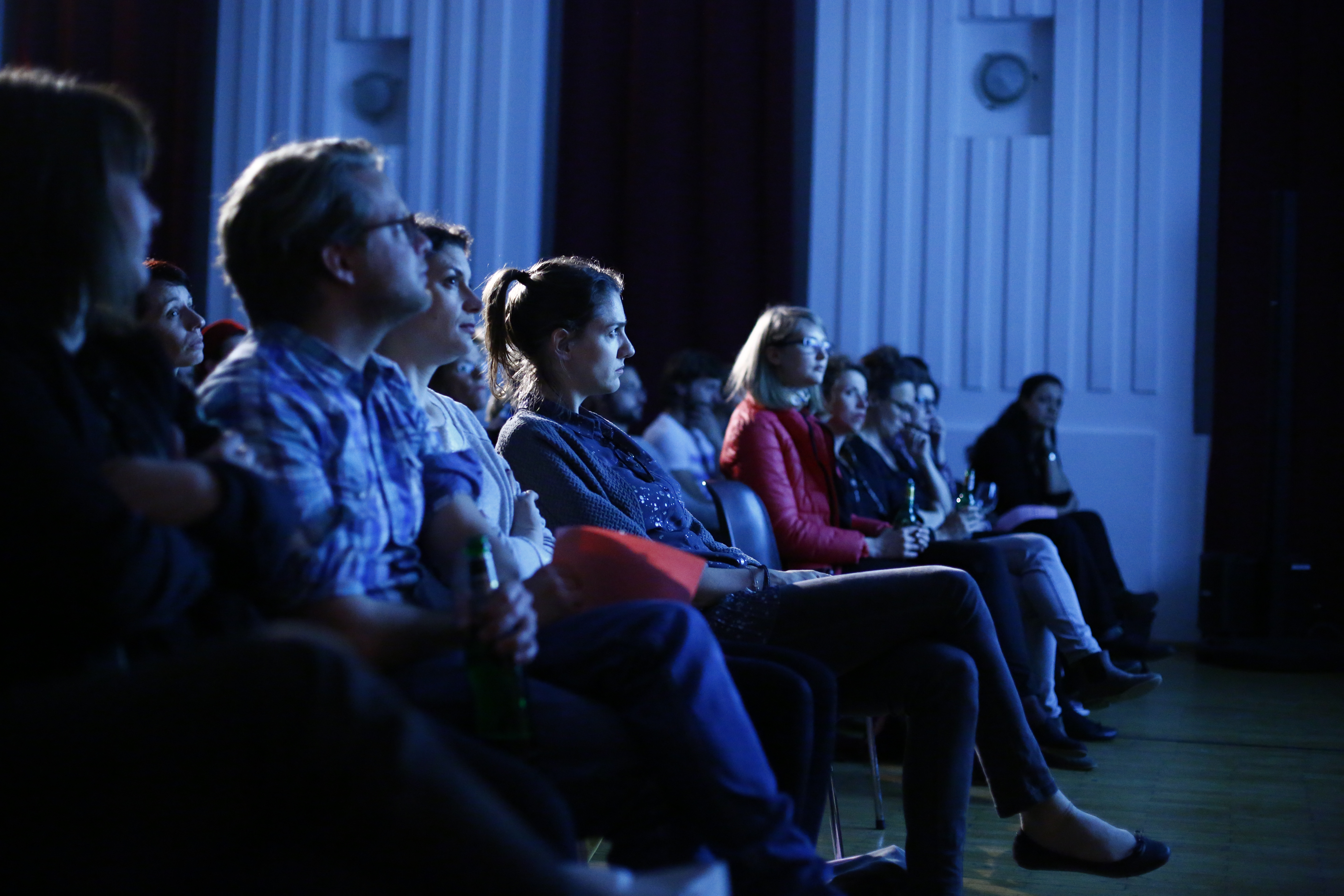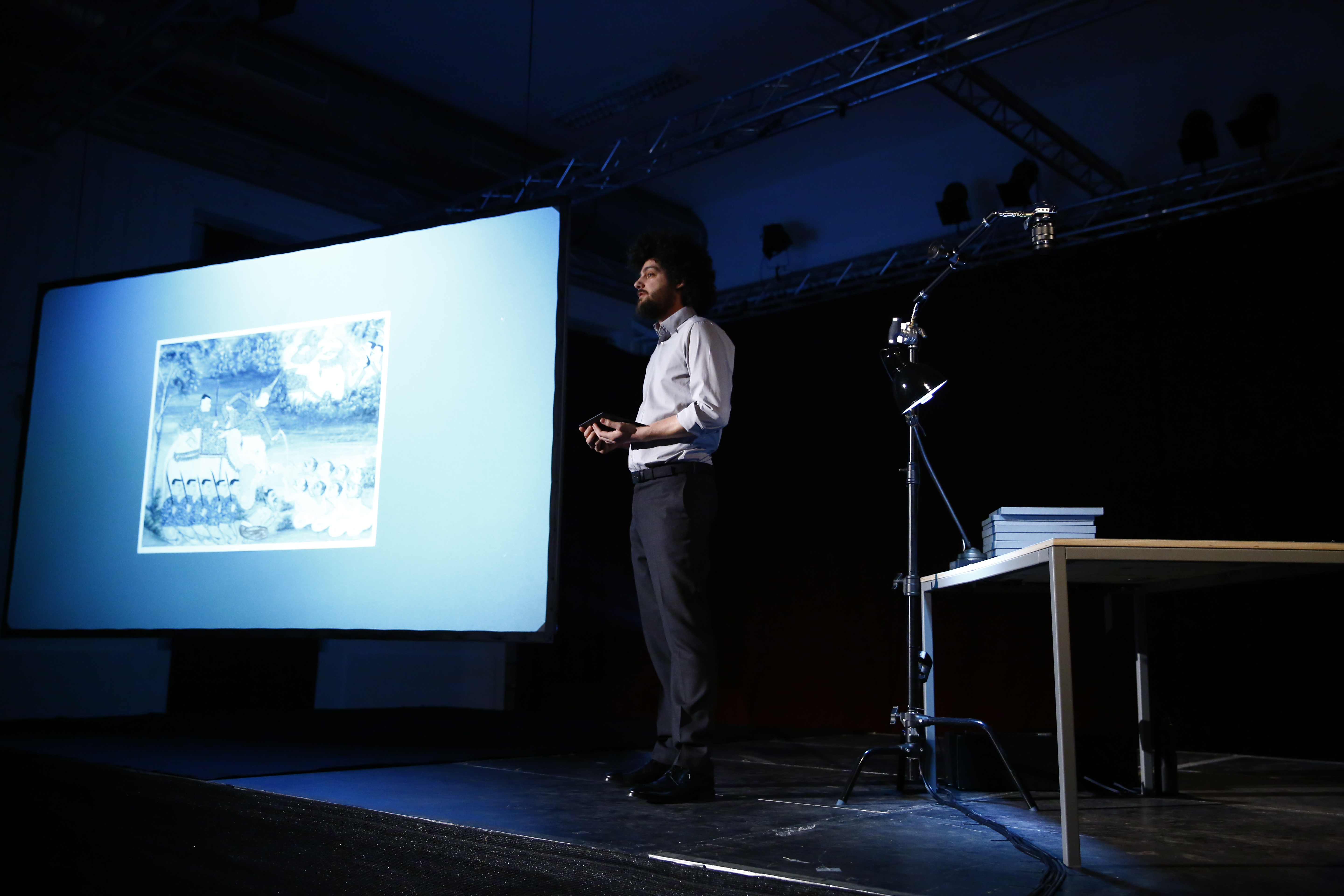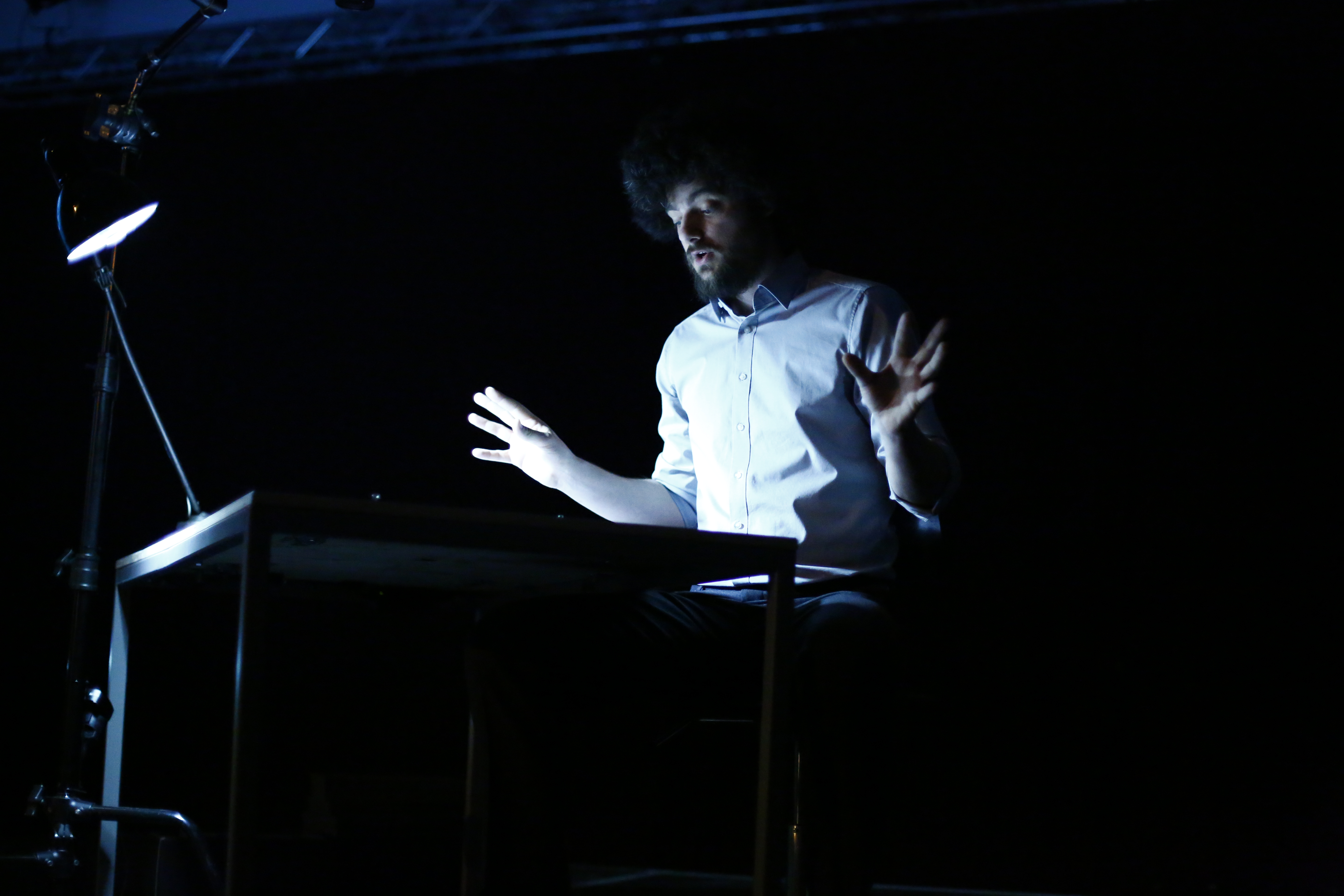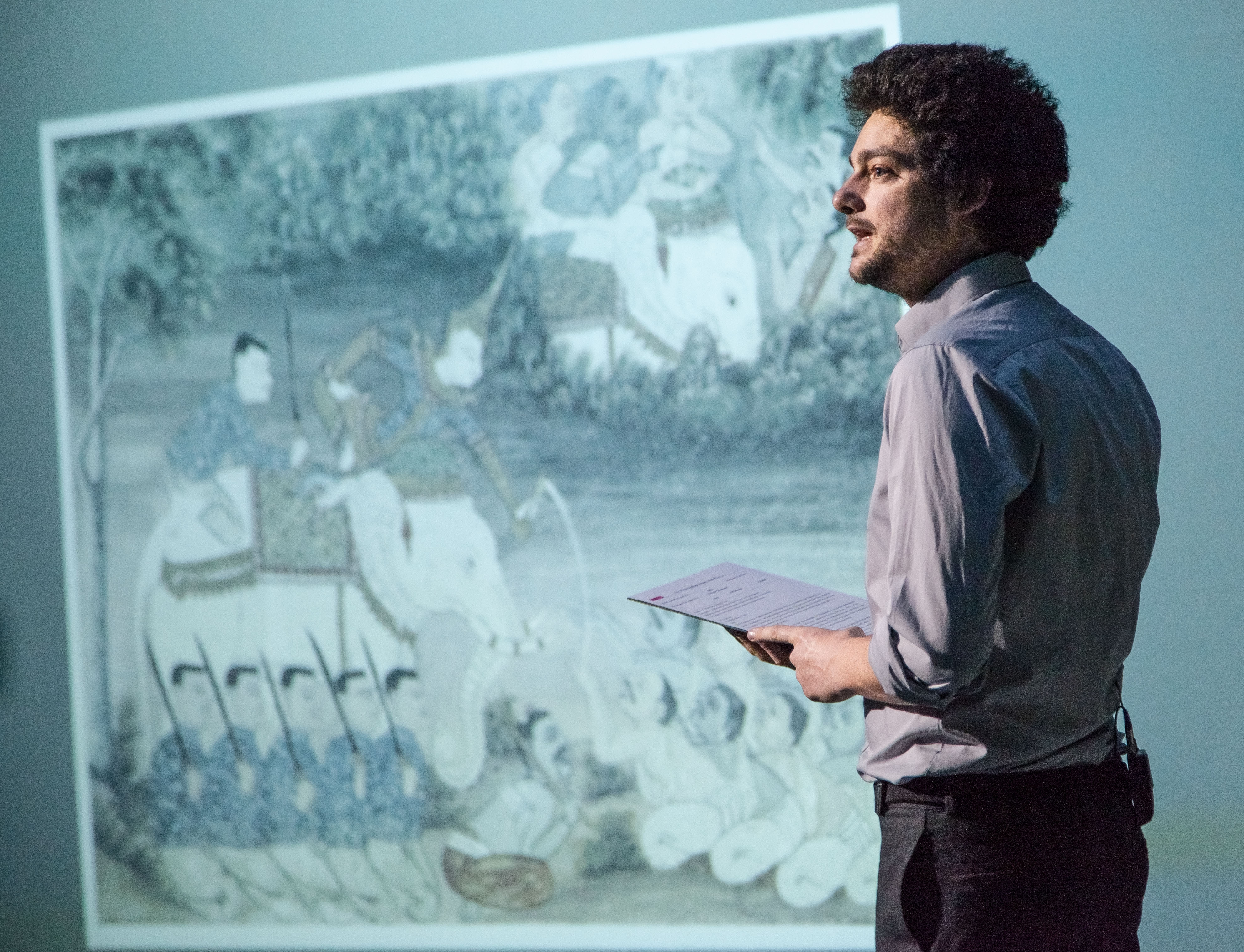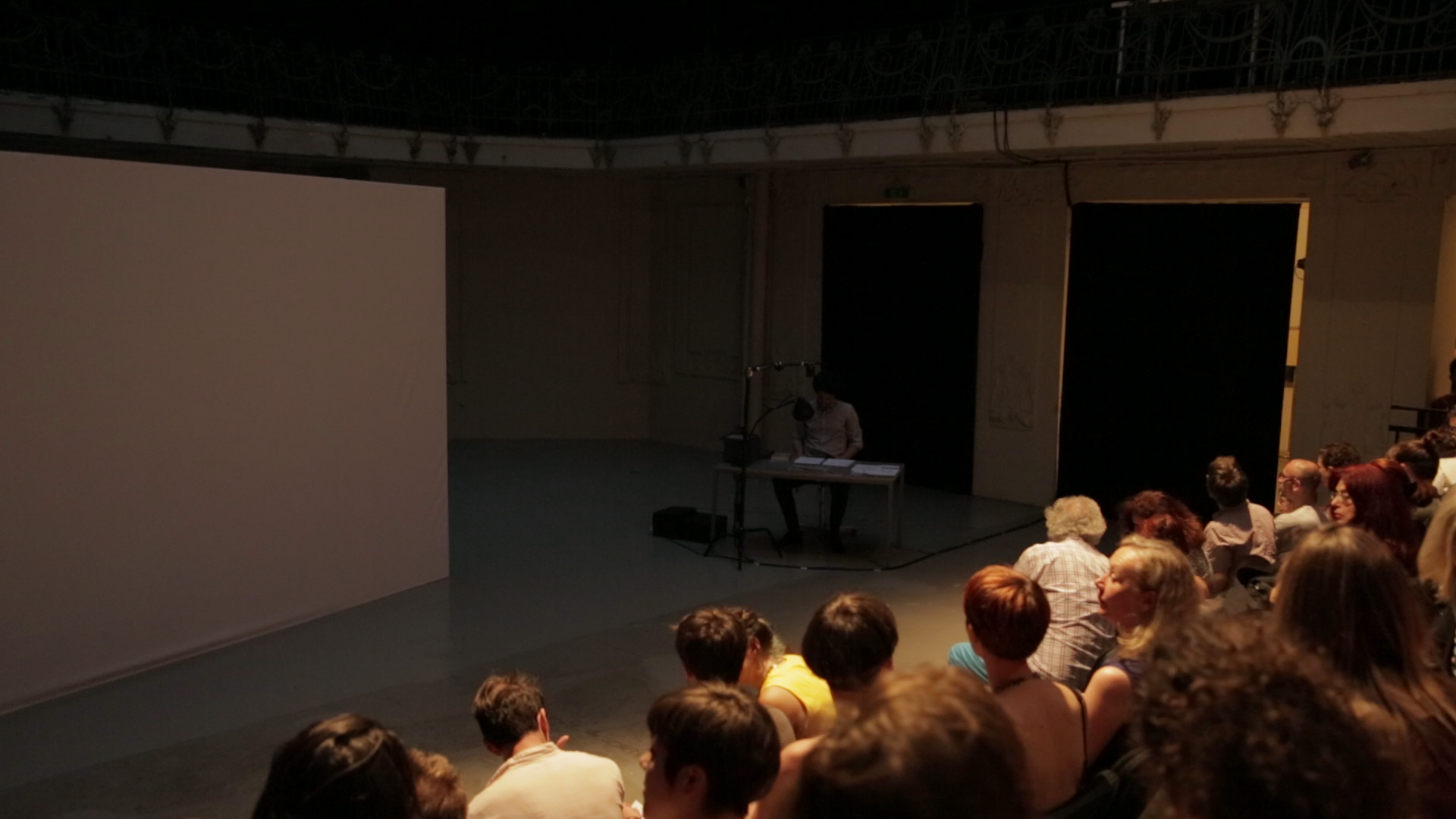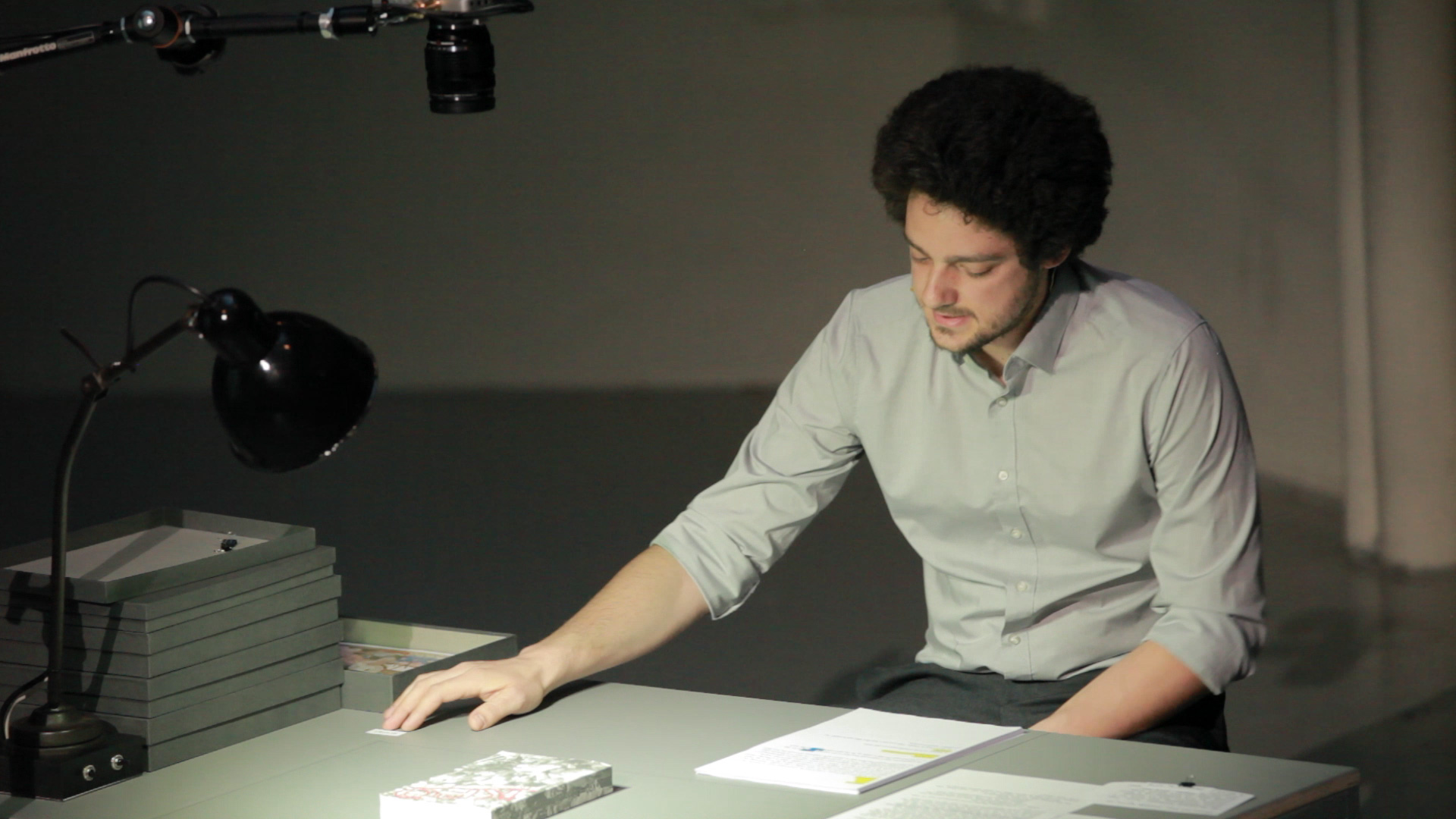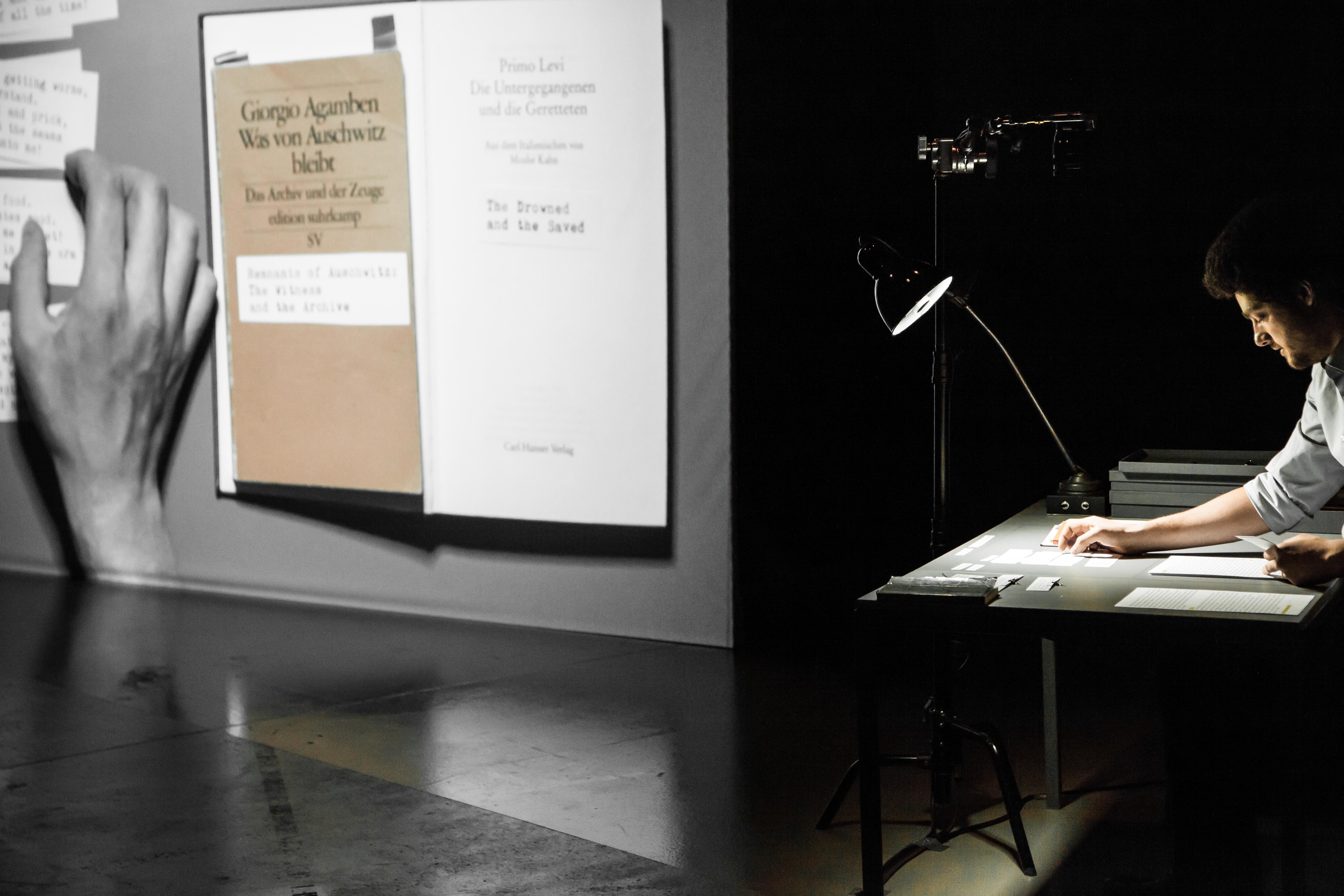In his feature-length live performance Eduard Freudmann brings documents and objects as protagonists on the stage in order to consult them about how to speak of a horror once its witnesses are gone or silent. The performance is based on the artist's family archive, which was founded by his late grandmother and includes poems written by his grandfather while detained in Nazi concentration camps.
The White Elephant Archive
Performance Series (2012-2015)
In his feature-length live performance Eduard Freudmann brings documents and objects as protagonists on the stage in order to consult them about how to speak of a horror once its witnesses are gone or silent. The performance is based on the artist's family archive, which was founded by his late grandmother and includes poems written by his grandfather while detained in Nazi concentration camps.
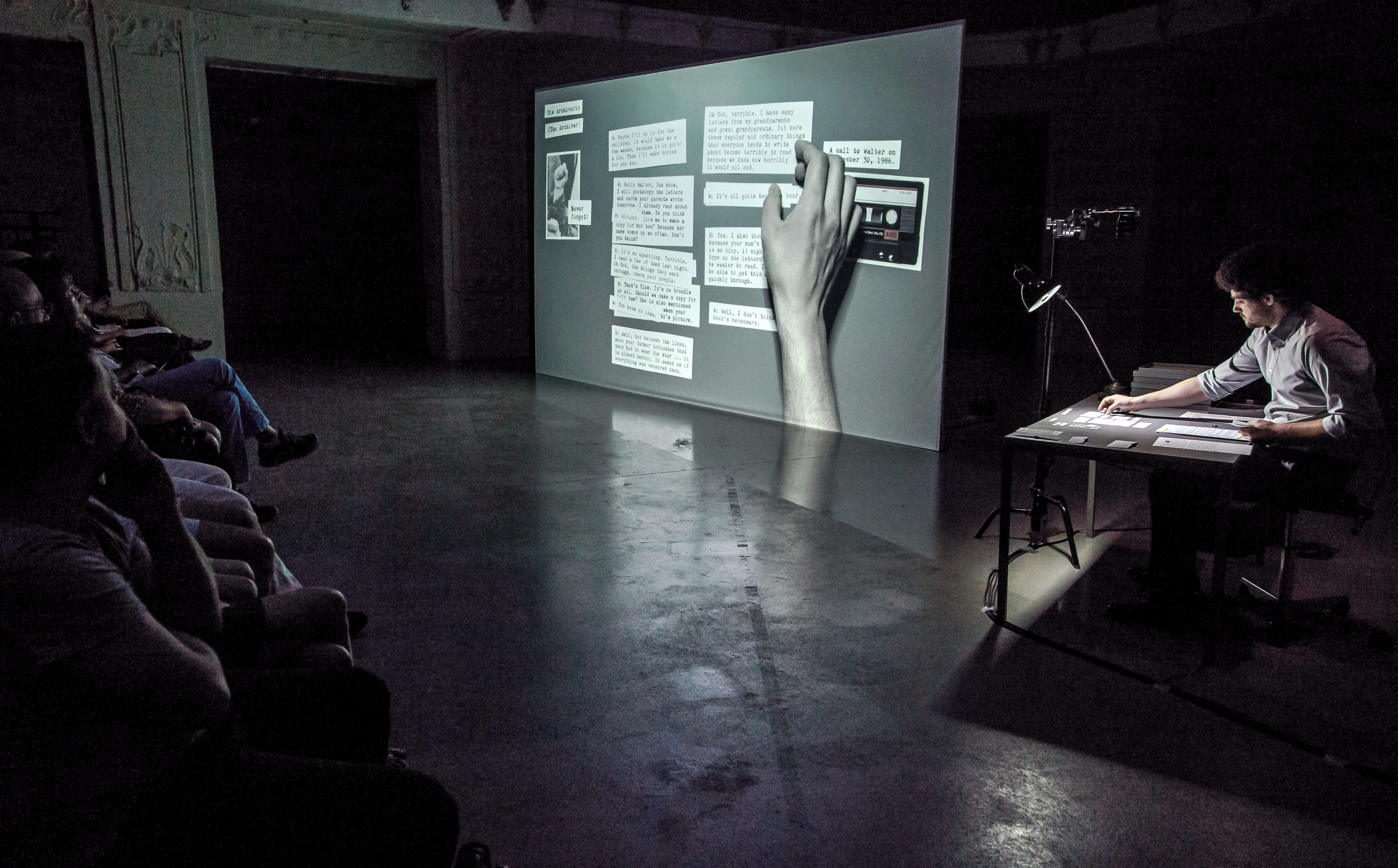
The White Elephant Archive, Setting No. 3 – Reviews
In his mesmerizing performance The White Elephant Archive, Setting No. 3, Eduard Freudmann nails us to our chairs as he guides us through his family’s story and its struggle to commemorate the Holocaust. Methodically placing the contents of his family’s archive on his desk one by one, document upon document, Freudmann immerses us in his obsession for his family’s story, gradually revealing layers of memory as well as memory’s black holes—what he knows and what he will never know. In Freudmann’s piece we sink into the factual hellhole of the Holocaust, and encounter a unique kind of Holocaust remembrance from the perspective of the third generation.
Edit András, curator and theorist (Hungarian Academy of Sciences)
Eduard Freudmann's performance piece The White Elephant Archive, Setting No. 3 is a searing examination of history and memory in post-Holocaust Vienna. It is the product of deep knowledge of Austria’s past, genuine cross-generational empathy, and serious aesthetic reflection.
Matti Bunzl, director of the Wien Museum
In The White Elephant Archive, Setting 3, Eduard Freudmann engages his audience in an archaeology of memory, piercing through archival layers to uncover an entangled history of Jewish assimilation and exclusion, acceptance and erasure, that is at the heart of Europe's recent past. But Freudmann's performance is firmly anchored in the present he shares with his audience. This work has found an utterly original medium through which to stage the work of memory and its intergenerational transmission.
Marianne Hirsch, scholar of comparative literature (Columbia University)
Performance, historical investigation, and a psychobiographical political narrative of a family of Viennese Jewish Communists, survivors of the Shoah: The White Elephant is precise – politically, aesthetically and methodologically/technically (arts-based research at its best) – and thus profoundly successful in demanding and provoking commemoration, imagination, confrontation, and amazement and rage.
Johanna Schaffer, art historian and theorist (Art School Kassel)
The right to tell one’s own story of victimization—whether denied by oneself or others—is at the heart of Eduard Freudmann’s brilliant and thoughtful performance. Sitting behind his desk, on a bare stage, Freudmann works as a phenomenologist, tracing the sediments of images, letters and recordings that remain from his family’s past. In this exemplary portrayal of his family’s life, Freudmann counters today’s loss of contemporary witnesses and their memory.
Paul Divjak (Wina magazine)
Credits
The White Elephant Archive, Setting No.3 premiered on April 30, 2015 at Spinoza Theatre Budapest
Duration: 112 minutes
Scenic arrangement: Eva Reinold
Executive producer: Živa Vavpotič
Set building: Ulrich Dertschei
Language editing: Julie Dawson, Benjy Fox-Rosen
Translation of poems: Sam Osborn
The White Elephant Archive, Setting No.3 premiered on April 30, 2015 at Spinoza Theatre Budapest
Duration: 112 minutes
Scenic arrangement: Eva Reinold
Executive producer: Živa Vavpotič
Set building: Ulrich Dertschei
Language editing: Julie Dawson, Benjy Fox-Rosen
Translation of poems: Sam Osborn
